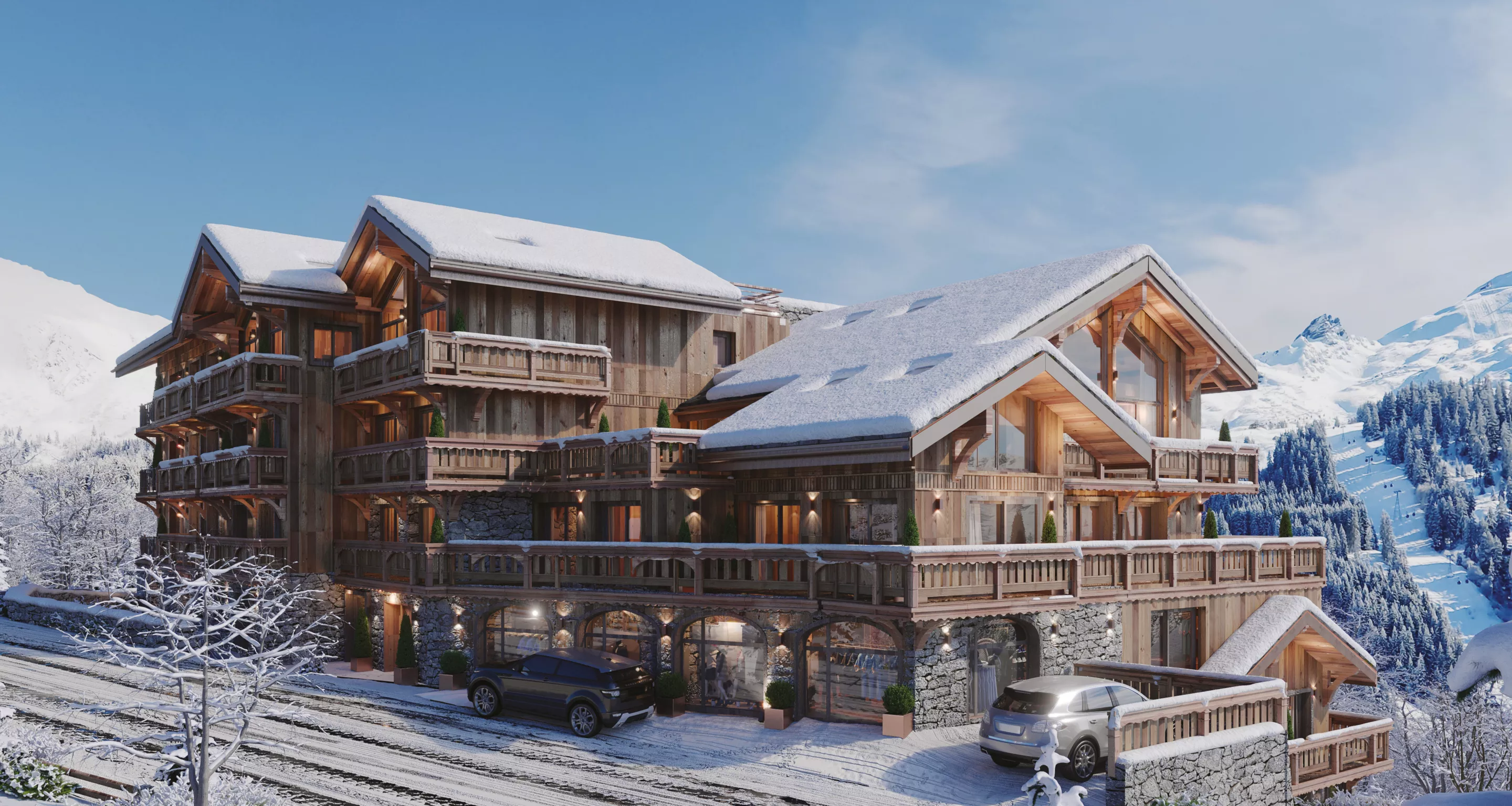
The Tax Benefits of Investing in Luxury Real Estate in the Mountains
5 August 2024 • 3 min read
The mountain setting, with its timeless appeal and iconic landscapes transformed throughout the seasons, boasts undeniable beauty. Mountains enchant, whether wrapped in a radiant blanket of snow under the bright sunlight, or awash with lush, wild greenery. This draw is clear for winter sports enthusiasts and nature lovers alike. In such a sumptuous environment, luxury real estate is in pride of place, offering residences such as chalets combining traditional stone and elegant woodwork, along with premium apartments designed to blend in with their picturesque surroundings. The high-altitude real estate market is not just about prestige; it is also a genuine niche brimming with investment opportunities and bolstered by significant tax benefits that will particularly appeal to savvy investors.
Tax Benefits for Luxury Real Estate Investment in the Mountains
Luxury mountain real estate in France can benefit from a range of favorable tax schemes. The Pinel Law, familiar among many investors, promotes investments in rental property and offers substantial income tax reductions – provided that specific criteria such as the property’s location and energy efficiency rating are met. For properties requiring significant renovation, the Denormandie Law offers tax incentives with a tax reduction capped at €300,000. Meanwhile, the Malraux Law allows a minimum 22% tax deduction on renovation and restoration work, which could apply to the renovation of an old chalet, with a maximum budget set at €400,000 over four years.

Specific Tax Benefits for Luxury Mountain Real Estate
Besides these schemes, investing in the mountains offers additional tax benefits. For example, buyers can claim back VAT on real estate when purchasing a new property, provided that the property is kept for at least 20 years and offers certain minimal services. This measure can represent significant savings. What’s more, new homes that meet the energy efficiency criteria set by the French Low-Consumption Building label can benefit from reduced local taxes. These benefits are particularly relevant with the increasingly widespread introduction of eco-efficient technologies such as solar panels and aerothermal systems, which enable properties to produce more energy than they consume.
Precautions to Take Before Investing
nvesting in luxury real estate in the mountains requires careful preparation and strategic evaluation of the geographic area in question. It is essential to choose a location that is not only suited to your personal expectations but also in line with market trends. This applies as much to areas renowned for skiing and outdoor activities as destinations more focused on premium services with spas and luxury boutiques.
Once the location is chosen, it is crucial to meticulously examine the property to understand its structure, amenities, history, and potential yield. This assessment should include checking property deeds, compliance with construction and safety standards, and the impact of any environmental regulations.
Understanding local real estate market trends and specific risks, such as avalanches, is also crucial. Last but not least, it is vital to consult property tax experts to maximize any available tax benefits while ensuring that the investment complies with local legislation and effectively leverages these different incentives.

Besides an exceptional living environment, investing in luxury mountain real estate offers a series of significant tax benefits that enhance the appeal of such projects. Whether you plan to live there yourself or rent out your property, these tax benefits can substantially optimize the return on investment. To successfully navigate this complex market, we recommend seeking the advice of recognized specialists in the sector, such as the professionals at Rising Stone. Their in-depth knowledge of real estate tax and the local market will ensure that you make a wise – and profitable – investment.
